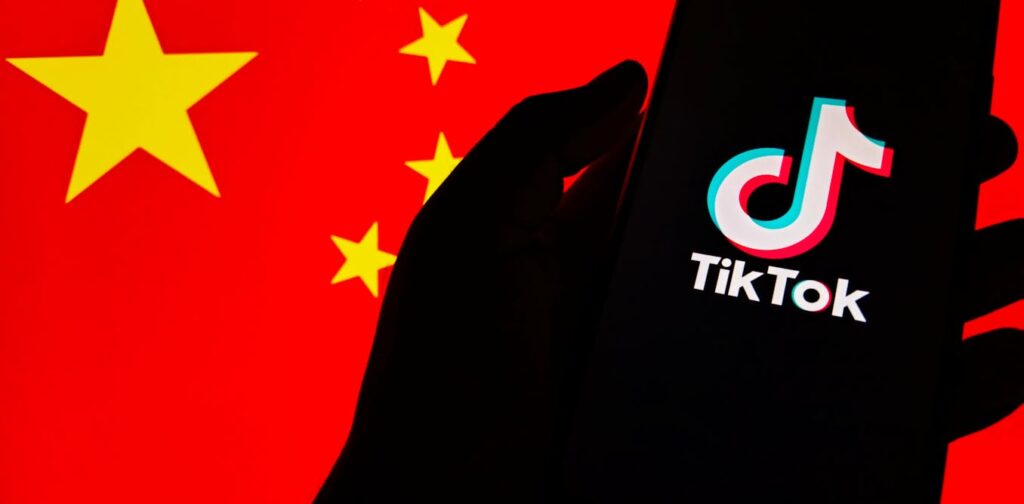
After years of mounting scrutiny over TikTok’s data practices, the Chinese video platform now faces a critical juncture in the United States. In 2024, TikTok was threatened with a forced sale or a nationwide ban, with a looming deadline set for June 19. This development marks a new, more aggressive phase in the US-China tech rivalry. TikTok has vowed to resist forced divestment, arguing that such a move would “trample” on free speech.
What began as a controversy over data privacy has evolved into a conflict with global implications. This is about more than just an app; it represents a shift in the balance of digital power, potentially redefining how nations perceive national security, economic sovereignty, and the internet itself.
The Broader Implications of TikTok’s Struggle
According to experts in AI bias, algorithmic fairness, and digital ethics, TikTok has become the flashpoint of a broader, more dangerous trend. Digital spaces are increasingly becoming battlegrounds for geopolitical influence. TikTok, once merely a social media app, is now viewed by some policymakers as a digital weapon. Its massive global following has made it a cultural juggernaut, and this viral success has positioned it as a prime target in the escalating US-China tech war.
US politicians express concern that TikTok’s parent company, ByteDance, could be compelled by the Chinese government to hand over American user data or manipulate the app’s algorithm to serve Beijing’s political agenda. These concerns, while serious, remain unproven. However, the potential for platforms to sway political sentiment is not unprecedented, as demonstrated by the Facebook-Cambridge Analytica scandal.
“TikTok’s algorithm isn’t like those of other social platforms that rely on a user’s social graph. Instead, it uses a real-time recommendation system based on micro-interactions, creating an ultra-addictive content stream.”
This unique algorithm gives TikTok an almost unprecedented power to shape opinions, whether intentionally or not.
Potential Outcomes and Global Digital Divides
There are three potential scenarios for TikTok in the US. The first involves a forced sale to a US-based entity, which could satisfy lawmakers but might provoke severe retaliation from China. The second option is a ban, which may be more symbolic than effective but would send a strong message. The third, and perhaps most likely, is a prolonged legal battle resulting in a stalemate, with the possibility of extending the June 19 deadline.
This situation underscores a deeper issue: the world is increasingly divided along digital lines. The US and China are constructing rival digital ecosystems, each suspicious of the other’s platforms. Similar to past restrictions on Huawei and Nvidia chip exports, this case highlights how national security and economic policy are merging in the digital age. This trend threatens to splinter the internet, with countries aligning their digital alliances based on political and economic interests rather than technical merit.
China’s Perspective and Global Ambitions
For China, TikTok is a symbol of national pride. It is one of the few Chinese apps to achieve global success and become a household name in Western markets. Forcing ByteDance to sell TikTok, or banning it, could be perceived as an affront to China’s ambitions on the global digital stage. The issue extends beyond a single platform; it is about control over the future of technology.
Defenders of TikTok argue that banning the app would undermine free speech, stifle creativity, and unfairly target a foreign-owned platform. While these concerns are valid, the broader landscape of digital platforms is complex and multifaceted. Other platforms have faced criticism over allegations of spreading misinformation, amplifying bias, and contributing to social harm. However, TikTok’s distinction lies in its algorithm and its ability to sway opinions on a global scale.
“TikTok’s ‘For You’ feed tracks micro-interactions, serving up personalized content with an addictive intensity.”
This capability allows users to be drawn deeper into curated content streams, often without realizing the extent to which their preferences are being influenced.
Regulatory Challenges and the Future of the Internet
The debate over TikTok also raises critical questions about how the US approaches regulation. Is TikTok a genuine national security threat, or is it merely a symbol of the growing strategic competition between two superpowers? Rather than resorting to bans and trade wars, there is a need for robust, cross-border frameworks that prioritize transparency, data protection, algorithmic accountability, and the mitigation of online harms.
Concerns about harassment, disinformation, addictive design, and algorithms that amplify toxic content are not unique to TikTok. US legislation, such as the Kids Online Safety Act and the proposed Platform Accountability and Transparency Act, signals growing concern. However, these efforts remain fragmented. The EU’s Digital Services Act offers a promising model for accountability, but global coordination is essential to prevent further fragmentation of the internet, often referred to as the “splinternet.”
The digital world, once dominated by a handful of powerful corporations, is now increasingly shaped by state rivalries. The battle over TikTok is a harbinger of deeper tensions surrounding how data, influence, and trust are distributed online. The real question is not whether TikTok survives, but whether nations can craft a digital future that prioritizes democratic values, cross-border collaboration, and the public good. This is not just about national security or free speech; it is a defining moment in the battle for the future of the internet.







